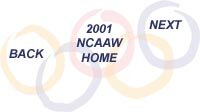|
Our campus, our community, and our families, all share in the concern for the safety and welfare of our students. All of these groups need to be partners in preventing college drinking tragedies. We urge parents and families to consider the role of alcohol before packing the car to head off to college. There are many resources available through the local campus, community agencies, and national organizations. There are many things that college students, parents, and college officials can do to prevent the harm that alcohol abuse can cause students and the campus community.
Suggestions for Parents
- Talk to your son or daughter about the legal use of alcohol and the need for responsible decision making; emphasize that competitive drinking, drinking as a hazing ritual, and drinking games can result in alcohol poisoning, and can kill even the most healthy young adult. Discuss any family history of chemical dependency.
- Explain clearly to your son or daughter that there is a balance between study time and social time, that he/she will need to find the balance that will meet the academic expectations you all agree on. Discuss the legal consequences of having a fake I.D.
- Talk to your son or daughter about the role of alcohol and how alcohol abuse can affect achieving his or her goals. Discuss the reality that peer pressure can occur about drinking choices.
- Keep the lines of communication open - call and e-mail often. Communicate as friends and as parents.
- Visit the campus and network with other families as well as other college officials. Encourage your son or daughter to become involved in campus life by joining organizations or working on projects of interest.
- Encourage your son or daughter to provide written authorization to the college to grant permission for the release of health and safety information to you.
Suggestions for Students
- Study. Remember the goals you are to achieve while you are in college!
- Stand up for your beliefs. If you do not drink alcohol, it is okay to say so. There are other students out there who feel the same. The majority of college students today are of legal age (21). Most students who choose to drink, use alcohol moderately.
- Have fun and socialize without the involvement of alcohol, be prepared that some students may pressure you to drink.
- Get involved in campus activities and if you cant find a group that seems to fit you, it is surprisingly easy to form a new one!
- Go out in groups and watch out for your friends. If you all go out together, come home together too. Help each other get home safely. Know the signs of alcohol poisoning.
- Be aware of the campus education and counseling resources. Look for peer education programs and student led health and safety programs. Dont forget that your family is a source of support too, so keep in touch often.
Suggestions for Colleges
- Make a firm statement that underage drinking will not be tolerated, and engage the local community in developing and enforcing the policy.
- Promote and sponsor many (and mainly) campus activities that are alcohol free.
- Provide alcohol free living options.
- Provide and publicize alcohol and other drug prevention personnel. Support peer education programs and student led initiatives.
- Disseminate campus alcohol and other drug policies that are uniformly enforced with all students, faculty, and staff.
- Encourage and be receptive to student feedback and involvement in maintaining a campus community that will be healthy, safe, and live up to the university mission of education and retention.
- Provide adequate funding for prevention efforts.
|
|
Resource List for Information on Alcohol and College
Inter-Association
Task Force on Alcohol
and Other Substance
Abuse Issues
Provides the model alcohol policy for colleges, marketing guidelines, programming strategies, and proceedings from the National Symposium on College Alcohol Practices called What Can You Do?
The BACCHUS and GAMMA Peer Education Network
This student leadership organization focuses on alcohol abuse prevention and related student health and safety issues. There are nearly 1000 campus affiliated peer education groups in the Network. These campus groups encourage and support student leadership and personal skill development and promote healthy choices.
www.bacchusgamma.org
|
|
The National Social Norms Resource Center
The National Social Norms Resource Center is an independent center supporting, promoting and providing technical assistance on the social norms approach as it applies to alcohol abuse and related health, safety, and social justice issues. Opened on July 1, 2000 at Northern Illinois University, the center is directed by Michael Haines, MS, a nationally recognized proponent and pioneering practitioner of this effective strategy. The Center is sponsored by The BACCHUS and GAMMA Peer Education Network.
www.socialnorm.org
|
|
The Higher Education Center
Provides alcohol and other drug resources for campus communities including links to parent resources.
www.edc.org/hec
|
|


